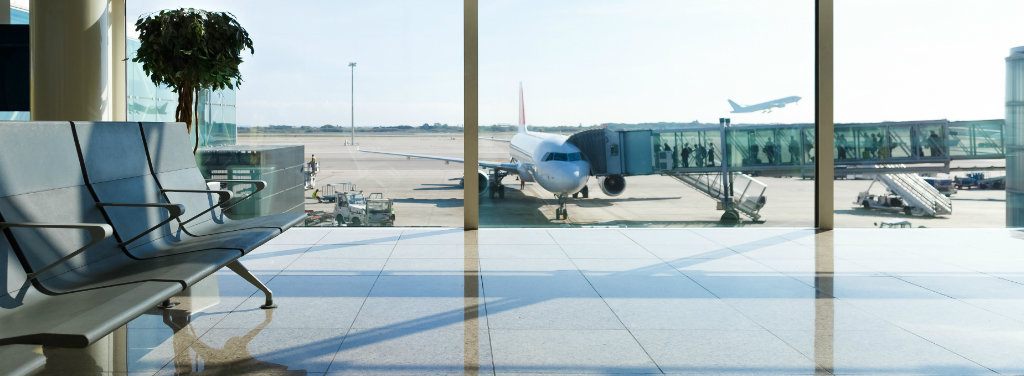
Electronics and Laptop Ban: The Key Talking Points
Like it or lump it, the mooted laptop ban affecting European flights to the US is very likely to happen.
It’s now a question of when, not if.
It’s a follow-on from the original ban affecting Middle Eastern flights, which applies to 10 airports in these countries: Egypt, Jordan, Kuwait, Morocco, Turkey, Saudi Arabia, Qatar and the United Arab Emirates.
The International Air Transport Association (IATA) calculates that the ban will impact roughly 2% of all international flights to the US.
As a highly inconvenient reality for travelers, it’s a source of general outcry and disbelief. There are more than 350 flights a day – and 14.5 million travelers a year – from Europe to the US.
The laptop ban, which also includes other large electronic devices (so anything bigger than a smartphone), will result in a massive slump in bookings, particularly in the business sector.
It could also impose an additional cost of more than $1 billion on passengers, a number which includes the loss of productive time in the sky for business travelers.
Passengers Will Pay
At the time of writing, many airlines – including Delta – don’t allow laptops in checked baggage, so the costs might look like this:
You can ship a laptop from the US to Europe to arrive in two days for around $200. FedEx, for example, insures protection of up to $2,000 and sell laptop boxes for $22.
The Key Talking Points
1. If passengers can’t carry a tablet or a laptop onboard, what’s your next best bet?
The problem for travelers trying to plan ahead is that the proposed US ban is vague. Its definition is based on “size” and not “functionality”, as it bans any electronic device “larger than a smart or cell phone.”
If you want to be on the safe side, consider checking ‘phablet’ devices (anything bigger than an iPhone 7+). The Department of Homeland Security has given a list of examples, but emphasises that it’s not exhaustive.
- Laptops
- Tablets
- E-readers
- Cameras
- Portable DVD players
- Electronic game units larger than a smartphone
- Travel printers/scanners
2. Is it worth having a smartphone and bringing a small keyboard?
The ban doesn’t limit the number of smartphones or other small electronic devices you can bring, so you might be okay with two smartphones, or one smartphone and a small keyboard, provided that the keyboard is as small as your smartphone. Just be careful to make sure they aren’t connected during security, as it may appear to be one larger, connected device. If in doubt, it’s always best to check your Ts & Cs in advance, before booking the flight.
3. What about those airlines that are relying on passengers’ electronics to power their entertainment systems, such as Southwest and United are?
It’s likely the airlines themselves would begin to offer this capability if the passengers are no longer able to do so.
4. What sort of personal passenger information sharing is commonplace among US/EU officials?
The US and EU have a bilateral “Passenger Name Record Agreement” to allow personal data information exchanges. This personal data follows data protection laws and only includes the information provided by passengers themselves at booking and check-in. Data airlines collect for commercial purposes may also be included.
5. How would a potential electronics ban impact US carriers?
If US airlines are directed to implement the ban, this could mean domestic flights will suffer the same fate because the ban is meant to protect the US territory. This would be more of an annoyance to air passengers, if anything, but wouldn’t likely reduce the overall amount of business and leisure passengers traveling to the US.
Laptop Ban: Twitter Can’t Believe It
The Department of Homeland Security says it’s a matter of safety, with a danger of bombs being hidden inside larger electronics.
UK airline pilots have said that the ban poses a risk of “catastrophic” onboard fires, because lithium batteries can ignite when faulty.
Travelers say that it’s important to have access to their laptop, because devices often contain sensitive data.
If the laptop flight ban happens, I say we all get loud typewriters. That’ll turn things around quickly.
— Konstant Karagiannis (@KonstantHacker) May 10, 2017
The #LaptopBan is the kind of “brilliant” idea that old men who haven’t done anything resembling real work in decades would come up with.
— bob calhoun (@bob_calhoun) May 12, 2017
Potential #laptopban affecting Europe will be expensive for #photographers; $200-300 for camera bodies/laptop DHL shipment home;won’t check
— Sarah Terry (@geographer7) May 11, 2017
It’s incredibly bizarre that we all just accept as a given that TSA agents will regularly steal things out of our checked luggage #laptopban
— Catherynne Valente (@catvalente) May 11, 2017
Click To Tweet
No Laptops or Electronics? Do This Instead
Experienced air travelers know that when WiFi first appeared on planes, people were ecstatic.
Until it stopped working properly (which happened quite a lot in the beginning).
And then everyone was furious. One minute it was a great leap forward in air travel technology, connecting to the internet at 30,000 ft.
The next it was a catastrophe.
Transatlantic air travel #Paxex 2017 style #LaptopBan #TBT (SAS DC-4) pic.twitter.com/FVWTDzjgmU
— Max Kingsley-Jones (@MaxK_J) May 11, 2017
But not being able to access your laptop on a flight could be a blessing in disguise. Of course, there’s the in-flight entertainment to keep you busy.
I once watched four Marvel movies back-to-back on a flight from Heathrow to Los Angeles. But if you resist, then you’ll find yourself in unchartered territory for our busy, connected lives.
Learn to Love ‘Airplane Mode’
With no laptops or tablets, all that’s left between you and analog bliss is one small thing. Turn your phone off. All the way off. Put it away. Stick it in the overhead bin. You’ll be distraction-free for the first time in ages.
You’ll be able to meditate on problems that have been bugging you. Or write a hand-written note to someone you care about. You could put together a proper to-do list based on your priorities, not the ones in your inbox.
And if all else fails, read a book. Or have a conversation with a stranger.
